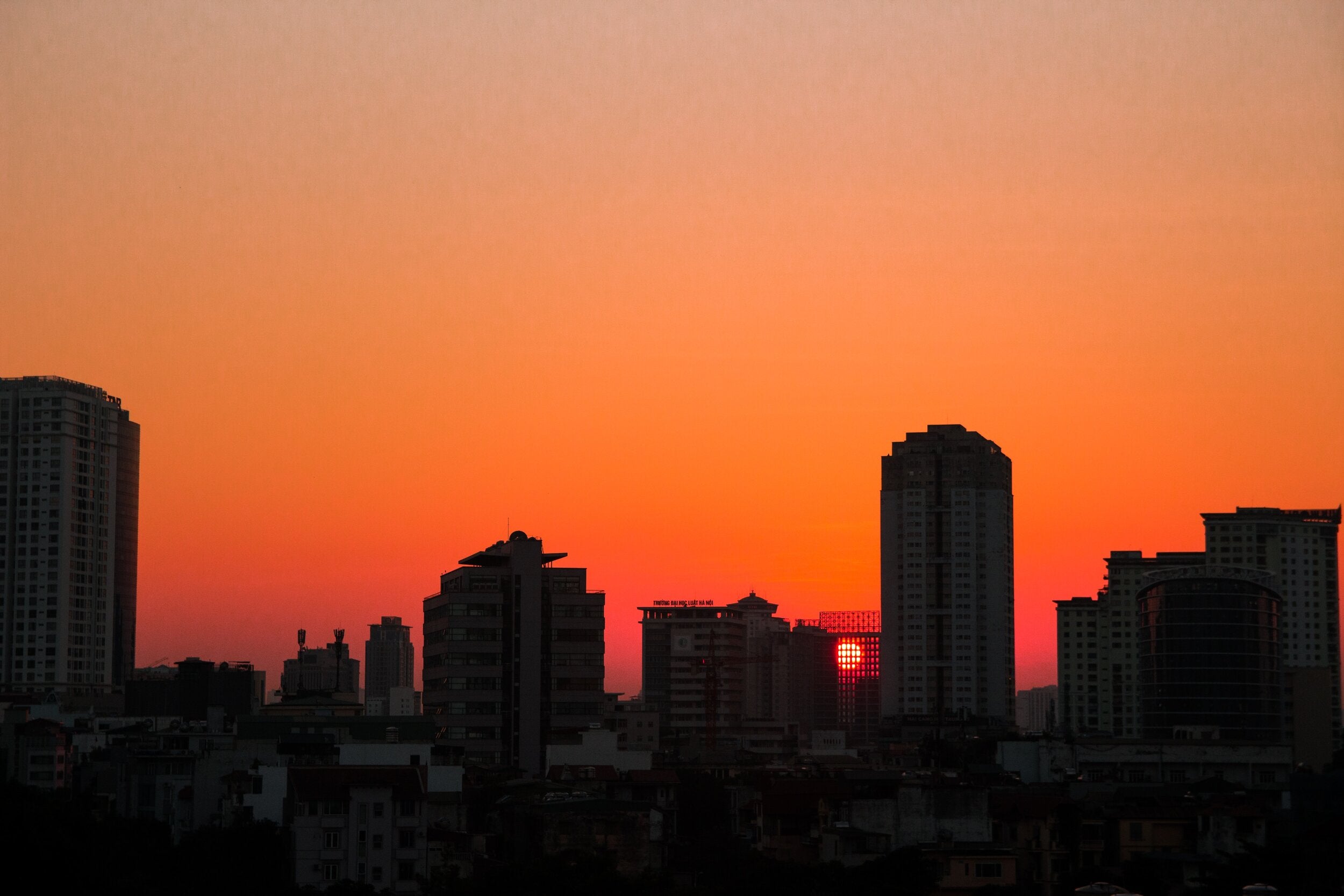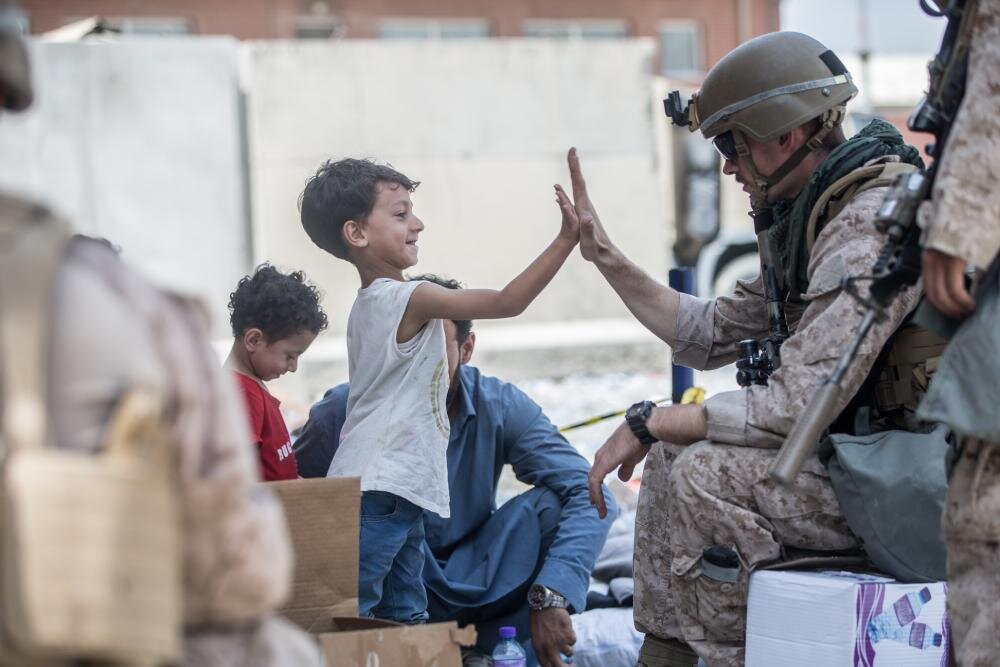
To Hanoi with Poems
It was a rainy Tuesday afternoon in Savannah. As I finished my breakfast, I exited the pub and downed my drink. Wanting to break up the monotony of my usual day, I decided to check out a book shop around the corner. The book shop was just half a block up under someone’s Victorian southern home. Tiny shop about the size of a piano bar dance floor with books stacked to the ceiling around every corner. A great place to re-discover classics and find your next favorite novel. I was in the mood for poetry, so I skimmed through the shelves, looking at first for a Bukowski or Kerouac because I enjoyed the taste of raw emotional rhymes, yet no luck. One book caught my attention immediately due to the title. “Thieves of Paradise” read the beaten yellow spine by a man named Yusef Komunyakaa. Long name and never heard of him. Flipping the book over, I saw nothing to tell me what the hell it was about, but with a title like that, it had to be good. The only other reassuring factor was that the author’s signature was on the very first page with a price tag of fifteen dollars. Sold, I grabbed that and a William Burroughs book, then headed back to the pub.
The bartender had my drink waiting for me before I sat down. I took a sip of the cold gin and flipped through the pages. I noticed a lot of the titles were Vietnam related, which sparked my interest. “Was this guy a vet,” I said to no one in particular. I came to a title that stood out to me. “Nude Interrogations,” - what the hell is that about? It read like this.
“Did you kill anyone over there? Angelica shifts her gaze from the Janis Joplin poster to the Jimi Hendrix, lifting the pale muslin blouse over her head. The blacklight deepens the blues when the needle drops into the first groove of "All Along the Watchtower." I don't want to look at the floor. Did you kill anyone? Did you dig a hole, crawl inside, and wait for your target? Her miniskirt drops into a rainbow at her feet. Sandalwood incense hangs a slow comet of perfume over the room. I shake my head. She unhooks her bra and flings it against a bookcase made of plywood and cinderblocks. Did you use an M-16, a hand-grenade, a bayonet, or your own two strong hands, both thumbs pressed against that little bird in the throat? She stands with her left thumb hooked into the elastic of her sky-blue panties. When she flicks off the blacklight, snowy hills rush up to the windows. Did you kill anyone over there? Are you right-handed or left-handed? Did you drop your gun afterward? Did you kneel beside the corpse and turn it over? She's nude against the falling snow. Yes. The record spins like a bull's-eye on the far wall of Xanadu. Yes, I say. I was scared of the silence. The night was too big. And afterward, I couldn't stop looking up at the sky.
Finishing the final line, the sound of the pub returned. Feeling cold sweat down the back of my neck, I looked around then closed the books. Speechless because I recalled emotions and feeling just like that. Slamming my drink back, I had only one question. Who the fuck is Yusef Komunyakaa?
Yusef Komunyakaa was born as James William Brown Jr. on April 29, 1947, in Bogalusa, Louisiana. Later on, he changed his name to Yusef Komunyakaa to honor his grandfather, who came to America as a stowaway on a ship from Trinidad. His father, a carpenter, was a strong advocate of the value of manual labor and hard work. Meanwhile, his mother would buy him books such as The Bible and the Encyclopedia. He would repeatedly barrow “Nobody Knows my Name” by James Baldwin from his church’s local library because he was not allowed to enter the public library due to the color of his skin. Growing up in Louisiana exposed him to the beautiful jazz and blues. Something he credits as a significant influence on his work. After high school, he joined the U.S. Army as a war correspondent. He left for Vietnam in 1969 with two poetry books. He served as a ground reporter and eventually rose to the managing editor of The Southern Cross’s military newspaper. In an L.A. Times article, he said this on his wartime experience, “Being from the south, I didn’t fear the vegetation and climate of Vietnam nearly as much as if I had been from an urban environment. I could identify with the landscape and with the Vietnamese people as a whole. That made it very hard to hate them as the enemy. Vietnam helped me to look at the horror and terror in the hearts of people and realize how we can’t aim guns and set booby traps for people we have never spoken a word to. That kind of impersonal violence mystifies me.” He left Vietnam with a new awakening for literature and a bronze star.
Returning home, he felt displaced, an emotion many GWOT veterans can relate to. Taking solace in his fellow veterans, he protested the forever war of his generation. Despite his contempt against the war, he decided to enter Colorado University using his G.I. Bill, attending creative writing workshops held by Dr. Alex Blackburn, author of the book “Door of the Sad People,” a novel based on the Colorado coal-mining wars. Yusef would write his first poem in 1973. In 1977 he would publish his first book, “Dedication and Other Darkhorses,” and finish his Master’s Degree in 1979. After 14 years and while renovating his house, he finally decompressed from the war and wrote “Somewhere Near Phu Bai.” He described his service as “Blurred images submerged in the psyche.” Continuing into the interview with the Washington Post, he said, “Attempting to deal with the specter underneath things can be frightening, It was as if I had uncapped some hidden place in me and poem after poem came spilling out.” He would publish 14 more poetry books, writing about vast subjects such as civil rights, jazz, love, and war. In 1994 Yusef Komunyakaa would win the Pulitzer Prize for poetry, cementing himself as the best veteran poet you have never heard of.
Yusef Komunyakaa is the silent veteran no one ever hears from, a man who grew up rough and gave no excuses, using it only as fuel for the craft—making his way through what he loved. Now he teaches at New York University as a professor of English. Why is he not revered in the ranks of O’Brien and Karl Marlantes or spoken of in the forever war’s poetry circles? It could be his quiet nature, the date of his poetry publications, or maybe the fact that he isn’t as quotable or cool to this generation’s Hemingway obsession. We live in an era of online poetry, where if it doesn’t fit in an Instagram story, we lose interest. Obscurity and critical analysis do not get likes because we would rather share than feel. We can do better. We are the closest thing we will get to the Greatest Generation, which is to say that we’ve got some pretty big shoes to fill. We had our war, and now we are blessed with the opportunity to tell the tale. I challenge you all to be more like Yusef Komunyakaa and maybe pick up a fucking book other than war stories and motivation.
Written By William "Buck" Bolyard
September 8, 2021









